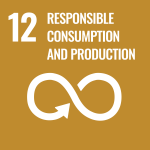Bio-based plastics: a huge potential for polymer manufacturers in combating climate change
Plastics grew in popularity amongst manufacturers in the past decades, simply because they can be easily moulded into a wide range of products. That said, when made from fossil resources and incinerated at the end of their life, plastic products add additional CO2 to the atmosphere.
To address this issue, Neste is cooperating with LyondellBasell to produce bio-based plastics from renewable materials – polypropylene and low-density polyethylene – at commercial scale. Neste’s renewable hydrocarbons are used for the production of these plastics. These hydrocarbons are derived from sustainable bio-based raw materials, such as waste and residue oils.
A life cycle assessment (LCA) study shows a greenhouse gas (GHG) emission reduction of more than 80% over the life cycle, compared to conventional fossil feedstock, when Neste’s renewable hydrocarbons are used in the production of polypropylene. This assessment took into account the renewable raw materials used, the refining process, all transportation steps along the value chain, as well as end-of-life emissions.
Polypropylene is used in various everyday applications such as cars, fashion, electronics and food packaging.
Associated SDG targets



